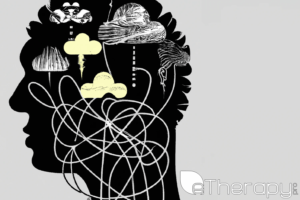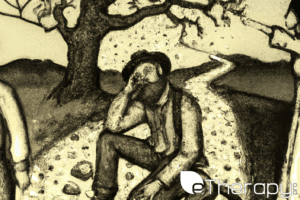
Although no one can go back and make a brand new start, anyone can start from now and make a brand new ending. – Carl Bard
Trauma can be a deeply transformative experience that leaves lasting marks on our lives. It can disrupt our sense of safety, normality, and our place in the world. The impact of trauma extends far beyond the immediate event, often affecting our mental health, relationships, and even societal structures. Understanding the complex nature of trauma is crucial for supporting those affected and fostering healing and recovery. By exploring the multifaceted character of traumatic events, their repercussions, and the human capacity for resilience, we can develop effective strategies to address the challenges faced by trauma survivors and promote a more compassionate and supportive society.
The Essence of Traumatic Events
Traumatic events possess a profound and distinct nature, leaving lasting imprints on individuals and society as a whole. Their defining characteristic lies in their intensity and the potential for enduring psychological impact. Unlike ordinary stressful experiences, traumatic events often entail threats to life or safety, evoking overwhelming emotions like fear, helplessness, or horror. What sets them apart is their disruptive power, shattering our sense of normalcy and control. The repercussions can range from transient distress to more enduring conditions like PTSD. Importantly, the severity and longevity of these effects hinge on an individual’s subjective perception and experience of the event, transcending objective details.
Brain’s Response to Traumatic Events
Trauma affects the brain, especially the amygdala and prefrontal cortex. This can cause intense emotions and difficulty processing experiences. Tailored support is crucial for trauma survivors.
The Immediate and Long-Term Impact
Understanding the immediate and long-term impact of traumatic events is crucial in comprehending the full scope of their consequences on individuals.
Immediate Psychological and Physical Reactions
In the immediate aftermath of a traumatic event, individuals often experience a wide range of psychological and physical reactions. These immediate responses are the mind and body’s way of coping with the overwhelming stress and shock of the event.
- Shock and Denial: Many people initially respond to trauma with a sense of shock and disbelief. This can manifest as emotional numbness, a feeling of unreality, or even a temporary inability to process what has happened. Denial, a defense mechanism, may also come into play as individuals struggle to accept the reality of the traumatic event.
- Hyperarousal: On the other end of the spectrum, some individuals experience hyperarousal, characterized by heightened anxiety, restlessness, and a constant state of alertness. This state of hyper-vigilance can lead to difficulty sleeping and concentrating.
- Dissociation: Some individuals may experience dissociation, a sense of being disconnected from their own bodies or emotions. It’s as though they are observing themselves from the outside, which can be a way of mentally distancing from the trauma.
- Physical Symptoms: Trauma can also manifest in physical symptoms, such as increased heart rate, sweating, and trembling. These physiological reactions are the body’s way of preparing for a fight-or-flight response.
These immediate reactions are normal responses to an abnormal and distressing situation. They serve as a temporary defense mechanism, helping individuals cope with the initial shock of the trauma.
Beyond the Immediate: Long-Term Psychological Effects
While some individuals recover relatively quickly from the immediate impact of trauma, others may experience long-term psychological and emotional effects that persist beyond the initial shock. These effects can be diverse and enduring, separate from the development of PTSD.
- Depression and Anxiety: Trauma can increase the risk of developing depression and anxiety disorders. Persistent feelings of sadness, hopelessness, and excessive worry are common in trauma survivors.
- Flashbacks and Intrusive Thoughts: Some individuals continue to experience intrusive thoughts and flashbacks about the traumatic event, even long after it has occurred. These memories can be distressing and disruptive to daily life.
- Guilt and Shame: Survivors of trauma may grapple with feelings of guilt or shame, especially if they believe they could have prevented the event or blame themselves in some way.
- Substance Abuse: Trauma survivors may turn to substances like alcohol or drugs as a way to self-medicate and cope with their emotional pain.
- Difficulty Trusting Others: Trust issues can arise as a result of trauma, making it challenging for individuals to form and maintain healthy relationships.
It’s essential to recognize that the long-term psychological effects of trauma can vary widely among individuals. While some may recover with time and support, others may require professional help to address these enduring challenges. Understanding the full spectrum of trauma’s impact is a crucial step in providing appropriate care and support to survivors.
Traumatic Event: Perceptions and Influences on Trauma
Exploring how trauma is perceived and understanding the various influences on individuals’ experiences is essential in our comprehensive examination of this complex subject.
Individual Responses and Variability
Individual responses to trauma can vary significantly, and this variability is influenced by personal history and resilience. Personal history encompasses an individual’s life experiences, upbringing, and previous exposure to adverse events. Those with a history of previous trauma may be more susceptible to the effects of subsequent traumatic events. On the other hand, resilience, which refers to an individual’s ability to bounce back from adversity, plays a crucial role. Some individuals may have innate resilience or develop it through supportive relationships and coping strategies. Resilience can mitigate the long-term impact of trauma, helping individuals recover more effectively.
Cultural and Societal Contexts
The perception and impact of trauma are deeply intertwined with cultural and societal factors. Different cultures may have unique ways of understanding and responding to traumatic events. Cultural norms, beliefs, and rituals can influence how individuals and communities cope with trauma. Moreover, societal factors such as access to resources, social support systems, and the stigma associated with seeking help can significantly shape the experience of trauma. For example, in some societies, there may be a reluctance to discuss mental health issues openly, while in others, seeking therapy may be more socially accepted.
It’s important to recognize that trauma is not solely an individual experience but one that occurs within a broader context. By considering the diverse ways in which individuals respond to trauma and acknowledging the influence of culture and society, we can better understand and support those affected by these challenging events.
Traumatic Event: Resilience, Recovery, and Collective Trauma
In the aftermath of trauma, individuals and communities often embark on a journey toward healing and recovery. This process is a testament to the remarkable resilience of the human spirit.
The Concept of Collective Trauma
Trauma isn’t just about individual experiences; it can also affect entire communities or groups. Collective trauma happens in situations like large-scale disasters or societal upheaval, where people share the trauma, making recovery more challenging
Communities affected by collective trauma often exhibit remarkable resilience when they unite to support one another. Solidarity, mutual aid, and the shared experience of survival contribute to the recovery process. Collective trauma can also trigger societal reflection, leading to positive changes and enhanced preparedness for future challenges.
Conclusion Of Traumatic Event
Our exploration of traumatic events has unveiled their multifaceted nature and profound impact. Trauma, whether individual or collective, leaves an enduring mark, reshaping lives in significant ways. However, the human spirit’s resilience and capacity for recovery shine through.
In the midst of chaos, there is also opportunity. – Sun Tzu
The path to healing and recovery may be arduous, but it is marked by strength, support, and resilience. Understanding the diverse nature of traumatic events empowers us to empathize with those who have endured them and provide the vital support needed for healing. Together, we can forge a future defined by resilience, recovery, and a steadfast commitment to each other’s well-being






